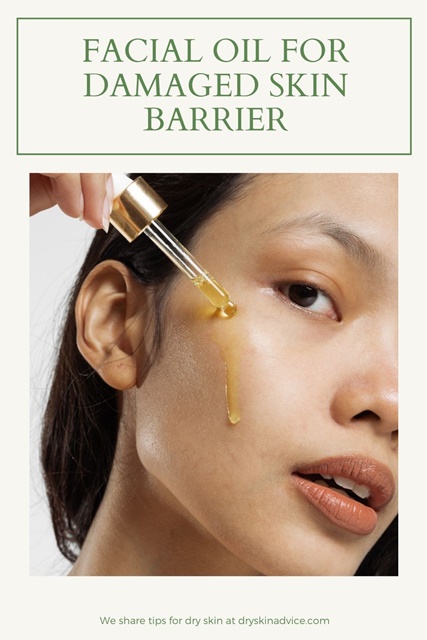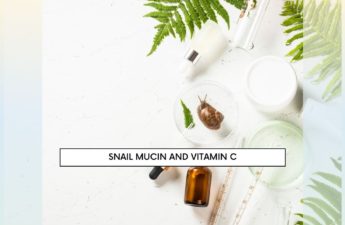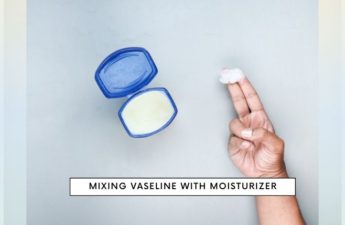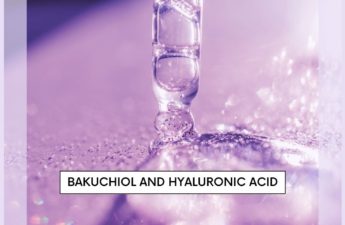When your skin barrier is impaired or damaged, you will experience transepidermal water loss (TEWL). Transepidermal water loss is when water passed from the dermis through epidermis and evaporates from the skin’s surface(source). In short, when your skin barrier is damaged, your skin is unable to trap the moisture in your skin. As a result, you might experience signs like dryness, itchiness, redness, and sensitivity. Your skin is constantly dry no matter how many times you moisturize your skin.
There are several factors that caused a damaged skin barrier. The most common reason is overwashing or over-exfoliating your skin. A harsh cleanser and scrub can strip away skin’s natural moisture and damage the natural lipid barrier of our skin. Other factors such as pollution, aging, and stress will affect your skin barrier as well.

Why Facial Oil is Good for Damaged Skin Barrier
Facial oil has been gaining popularity in the field lately. It brings countless benefits to the skin, especially dry skin. When your skin barrier is damaged, it’s hard to trap and retain moisture. Hence, your skin is constantly feeling dry and itchy. Facial oil helps to seal the moisture and gives extra nourishment to your skin.
Now, let’s break it down. There are three major ingredients to keep your skin hydrated and moisturized which is humectants, occlusives, and emollients. Each of them benefits your skin in their own ways and it wasn’t meant to replace with one another. Facial oils fall under both the occlusive and emollient categories(depends on the type of facial oil). Occlusive ingredients trap humectants and emollients in your skin. With that being said, facial oil acts as a protective layer for your skin to retain moisture.
Secondly, facial oils usually have a simpler formula and ingredient list because they are naturally packed with nutrients and vitamins. Thus, the ingredient list usually is short and simple. It is always a good idea to simplify your skincare routine and products when your skin barrier is compromised. Using a facial oil with fewer ingredients also means that it’s less likely to trigger and further irritate your skin.
Not all oils are created equal. There are differences between each type of oil including linoleic and oleic acid content, textures, and benefits for the skin.
Below are some face oils that we recommend when your skin barrier is damaged. We recommend everyone do more research and understand your skin before incorporating any skincare products into your routine.

Hemp Seed Oil
Hemp seed oil is extracted from the small seeds of the Cannabis sativa plant. It is different from cannabidiol (CBD) oil that is extracted from the stalks, leaves, and flowers of the hemp plant. Regardless, hemp seed oil still a powerful facial oil that will benefit your skin. Hemp seed oil contains gamma-linolenic acid that will help fight inflammation. In addition, research has shown that food rich in gamma-linolenic acid is efficacious for treating transepidermal water loss (TEWL). In other words, hemp seed oil will protect your damaged skin barrier from moisture loss. (source)
Jojoba Oil
Jojoba oil is derived from the seeds of jojoba plants. This non-comedogenic oil can form a protective barrier and prevent moisture loss. Jojoba oil is rich in vitamin E that is a potent antioxidant to the skin. With that being said, jojoba oil help to fight oxidative stress caused by external factors. Moreover, it has natural anti-inflammatory and healing properties that may help relieve irritated skin such as dryness, itching, and flaking.
Prickly Pear Seed Oil
Prickly pear seed oil has a dark yellow color and is derived from prickly pear cactus. It is truly versatile and has been used for healing purposes for centuries. Prickly pear seed oil contains Omega 6 EFA(source) linoleic acid that nourishes and repairs our skin. Linoleic acid strengthens our skin barrier and protects our skin against environmental stressors.
Evening Primrose Oil
Evening primrose oil is commonly taken as a supplement. It is just as effective when applying on your skin topically. One of the most notable components in evening primrose oil is gamma-linolenic acid. Not only that Gamma-linolenic acid reducing skin inflammation, but it also helps the skin retain moisture.
Grapeseed Oil
Despite the fact that it’s not the most popular or well-known skincare oil, grapeseed oil is actually a promising ingredient to use on your skin. It is extracted from the seeds of grapes. Even though it has a lightweight texture, grapeseed oil is extremely moisturizing for your skin. It is also packed with fatty acids like omega 6 that will nourish and heal your skin. It replenishes skin barrier function and helps to retain moisture for our skin.
Sea Buckthorn Oil
Sea buckthorn oil is harvested from the berries, leaves, and seeds of the sea buckthorn plant. It is packed with antioxidants and fatty acids that can greatly benefit our skin and hair. When skin barrier is impaired, your skin will become dry and scaly. Omega 3 in sea buckthorn oil will form a protective barrier and prevent skin dryness. Moreover, omega 7 deeply nourishes the skin and improves skin health.





